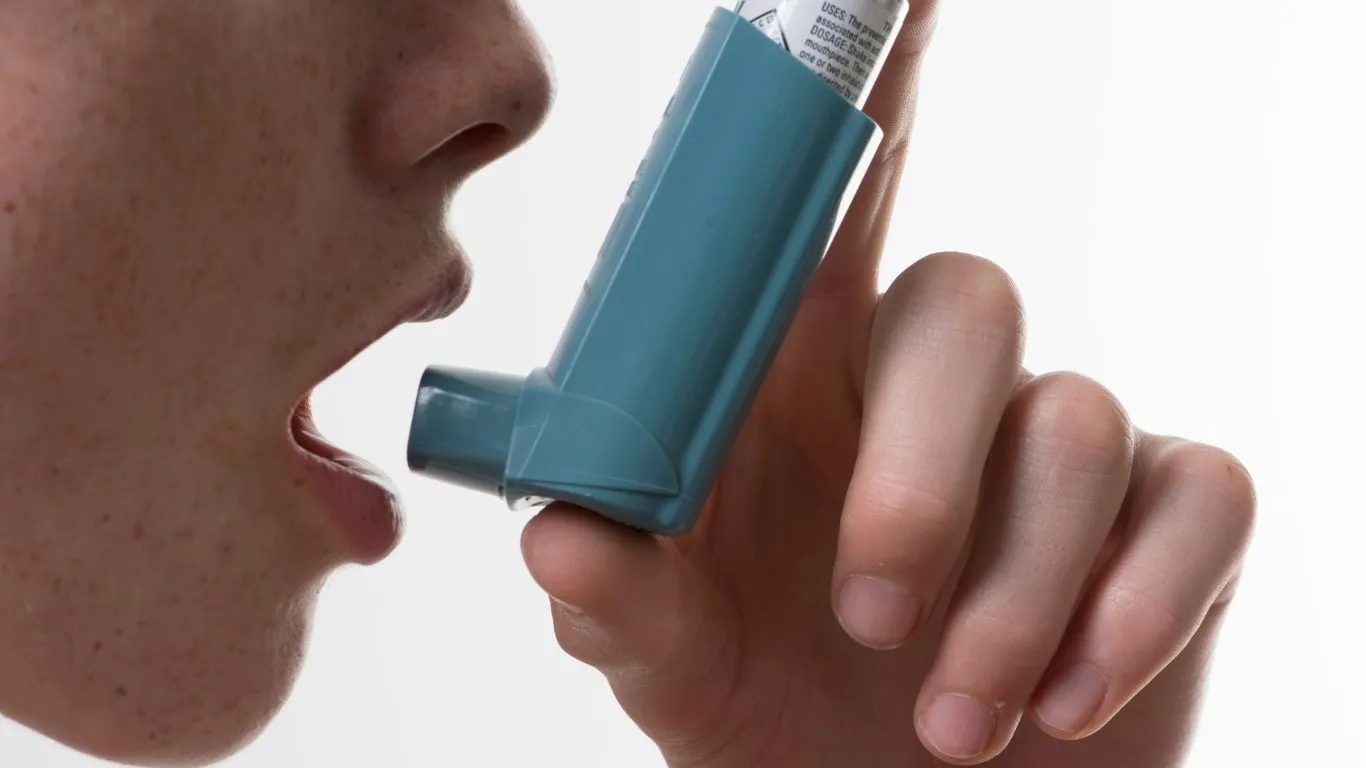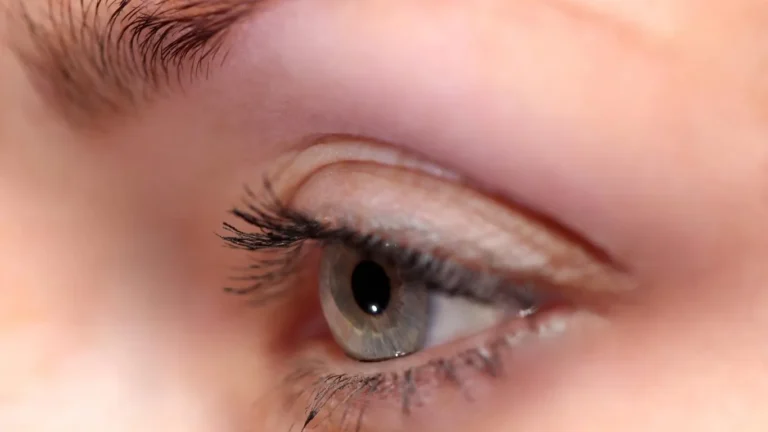Asthma and Sleep Disorders: The Shocking Truth About Nighttime Attacks
Have you ever woken up in the middle of the night gasping for air, feeling like your lungs just won’t cooperate? If you have asthma, you probably know exactly what I’m talking about. As an asthma specialist, I’ve seen countless patients struggle with asthma and its link to sleep disorders. It’s frustrating, exhausting, and—let’s be real—completely unfair. After all, sleep is supposed to be our body’s time to rest and recover, not another battleground for our lungs.
But here’s the thing—asthma and sleep issues go hand in hand, and many people don’t even realize it. Maybe you just think your nighttime cough is “normal” or that waking up short of breath is just part of the deal. It’s not. So, let’s break it down and talk about why asthma and sleep disorders are so closely linked and, more importantly, what you can do about it.
Why Does Asthma Get Worse at Night?

If you’ve ever wondered why your asthma seems to have a personal vendetta against your sleep, you’re not alone. It’s called nocturnal asthma, and it’s more common than you might think. In fact, studies show that nearly 75% of asthma patients experience worsening symptoms at night.
The Science Behind Nocturnal Asthma
There are a few key reasons why asthma symptoms tend to flare up after dark:
- Changes in Hormones: Our bodies follow a natural circadian rhythm, and at night, certain hormones like cortisol (which helps reduce inflammation) drop. Less cortisol means more inflammation in the airways.
- Posture Problems: Lying down can make it harder for your lungs to function properly. Mucus can accumulate, airways can become more restricted, and suddenly, breathing feels like a workout.
- Increased Exposure to Triggers: Your bedroom might be full of allergens you don’t even think about—dust mites in your pillows, pet dander on your sheets, or mold in the air. All of these can set off an asthma attack.
- Cooling of the Airways: Ever noticed how the air feels cooler at night? For some people, that temperature drop can trigger bronchial constriction, making it harder to breathe.
My Personal Experience with Patients
I’ve had patients come to me convinced that they were just “bad sleepers,” only to realize that their asthma was the real culprit. One patient, a 35-year-old teacher, told me she would wake up coughing every night at 2 AM like clockwork. She thought it was stress, but after a little detective work, we found out her old mattress was harboring dust mites—a major asthma trigger. A hypoallergenic cover and some cleaning adjustments later, her sleep improved dramatically.
How Asthma Triggers Sleep Disorders

It’s not just about asthma making sleep harder; it’s a two-way street. Poor sleep can actually make your asthma worse, creating a vicious cycle. If you’re not sleeping well, your body isn’t recovering properly, which can make inflammation worse and weaken your immune system.
Common Sleep Disorders Associated with Asthma
Asthma sufferers are more prone to certain sleep disorders, including:
- Sleep Apnea: This is a big one. People with asthma are at a higher risk of developing obstructive sleep apnea (OSA), a condition where breathing repeatedly stops and starts during sleep.
- Insomnia: Chronic coughing, wheezing, and shortness of breath can make falling and staying asleep nearly impossible.
- Restless Sleep: Even if you don’t wake up fully, your body might still be in distress throughout the night, leading to poor sleep quality.
And trust me, when you’re running on just a few hours of interrupted sleep, everything feels harder—your asthma symptoms, your energy levels, and even your mood.
Are You at Risk?
Not everyone with asthma will develop sleep disorders, but if you’re experiencing any of the following symptoms, it might be time to take a closer look:
- Waking up gasping for air
- Frequent nighttime coughing
- Snoring or choking sounds during sleep
- Morning headaches
- Daytime fatigue (even after a full night’s sleep)
Sound familiar? If so, don’t brush it off as “just how things are.” There are ways to improve both your asthma and your sleep, and trust me, it’s worth it.
How Poor Sleep Worsens Asthma Symptoms

We’ve already established that asthma can disrupt sleep, but let’s flip the script—what happens when lack of sleep makes asthma worse? Spoiler alert: It’s not pretty. Poor sleep can trigger inflammation, weaken the immune system, and even increase airway sensitivity.
The Vicious Cycle of Asthma and Sleep Deprivation
Here’s how it usually plays out:
- Interrupted sleep due to asthma symptoms → Your body doesn’t get enough rest.
- Lack of sleep leads to increased inflammation → Your airways become even more reactive.
- Weakened immune system → You’re more prone to infections that can trigger asthma attacks.
- More frequent and severe asthma symptoms → And the cycle continues.
It’s like a never-ending loop, making it harder to breathe and even harder to function during the day. In my practice, I’ve seen patients who never connected their worsening asthma to sleep deprivation—until they started sleeping better and noticed a major improvement in their breathing.
Best Sleeping Positions for People with Asthma

Did you know that how you sleep can make a big difference in your asthma symptoms? Some positions can help keep your airways open, while others might actually make things worse.
What Works Best?
Based on experience and research, these are the best sleeping positions for asthma sufferers:
- Sleeping on your back with an elevated head: This helps reduce postnasal drip and keeps airways clearer.
- Side sleeping (especially on your left): This can prevent acid reflux, which is a sneaky asthma trigger.
- Using a wedge pillow: If lying flat worsens your symptoms, propping yourself up slightly can do wonders.
Positions to Avoid
And now, for the bad news—some sleeping positions can actually make asthma worse:
- Sleeping on your stomach: Puts pressure on your chest, restricting airflow.
- Flat on your back (with no elevation): Can lead to airway collapse and worsen sleep apnea.
It might take some trial and error, but finding the right position can make a night-and-day difference (literally!).
Practical Tips to Improve Sleep with Asthma

Okay, we’ve talked about the problems—now let’s talk solutions. If asthma is ruining your sleep, there are plenty of changes you can make to get some much-needed rest.
1. Keep Your Bedroom Allergen-Free
Your bedroom should be a safe zone from asthma triggers. Here’s how to make it happen:
- Use hypoallergenic bedding: Dust mites love pillows and mattresses, so invest in allergen-proof covers.
- Keep pets out of the bedroom: I know, I know—your dog loves to snuggle. But pet dander is a major asthma trigger.
- Wash bedding weekly in hot water: This kills dust mites and other allergens.
2. Control the Air You Breathe
Indoor air quality plays a huge role in asthma symptoms. Try these simple adjustments:
- Use an air purifier: HEPA filters can trap allergens and improve air quality.
- Keep humidity levels in check: Too much moisture can lead to mold, so aim for 30-50% humidity.
- Avoid strong scents: Scented candles and air fresheners may smell nice, but they can irritate sensitive lungs.
3. Adjust Your Nighttime Routine
A few small tweaks to your evening routine can go a long way in preventing nighttime asthma flare-ups.
- Take medications as prescribed: If your doctor recommends a nighttime inhaler, use it.
- Drink warm fluids before bed: Herbal tea or warm water can help keep your airways relaxed.
- Reduce stress before sleep: Deep breathing exercises, meditation, or a warm bath can help you unwind.
4. Monitor Your Symptoms
Keeping track of your asthma symptoms can help you identify patterns and make necessary adjustments.
- Use a peak flow meter to check your lung function.
- Keep a sleep diary to note when symptoms worsen.
- Talk to your doctor if symptoms persist despite making changes.
Trust me, taking these steps seriously can lead to better sleep and better breathing. I’ve had patients who struggled for years finally get relief just by tweaking their nighttime habits.
Medical Treatments for Asthma-Related Sleep Disorders

So far, we’ve covered lifestyle changes, sleep positions, and allergen control. But let’s not forget a key piece of the puzzle—medical treatments. If your asthma symptoms are consistently wrecking your sleep, you might need to adjust your treatment plan.
1. Controller vs. Rescue Medications
Asthma medications fall into two main categories:
- Controller medications: Taken daily to reduce inflammation and prevent flare-ups. These include inhaled corticosteroids and leukotriene modifiers.
- Rescue inhalers: Used for quick relief when symptoms spike. These contain bronchodilators like albuterol.
If you find yourself needing your rescue inhaler more than twice a week, it’s time to check in with your doctor. Your asthma might not be as controlled as it should be.
2. Allergy Shots (Immunotherapy)
For patients with allergic asthma, allergy shots can be a game-changer. By gradually exposing your immune system to allergens, these shots help reduce your body’s overreaction—meaning fewer nighttime flare-ups.
3. Biologic Therapies
For those with severe asthma, newer biologic treatments target specific pathways in the immune system to reduce inflammation. Medications like omalizumab (for allergic asthma) or mepolizumab (for eosinophilic asthma) can make a big difference.
When to See a Doctor About Asthma and Sleep Problems

If you’ve tried adjusting your sleeping habits, improving your environment, and following your treatment plan—but you’re still struggling—don’t ignore it. Here are signs that it’s time to talk to a doctor:
- You wake up multiple times a night gasping for air.
- You rely on your rescue inhaler too often (more than two times a week).
- You experience daytime exhaustion or difficulty concentrating.
- Your asthma symptoms seem worse at night despite medication adjustments.
A doctor can help pinpoint whether sleep apnea, acid reflux, or another underlying issue is making your asthma worse. In some cases, a sleep study might be needed to fully understand what’s going on.
Final Thoughts: Take Control of Your Sleep and Your Asthma
Here’s the good news—you don’t have to settle for restless nights and asthma flare-ups. By understanding the link between asthma and sleep disorders, making smart lifestyle changes, and working with your doctor, you can breathe easier and sleep better.
Every patient is different, so don’t be afraid to experiment and find what works best for you. Whether it’s adjusting your sleeping position, improving your bedroom air quality, or tweaking your medications, even small changes can make a huge difference.
Sweet dreams (and easy breathing) ahead! 😊
References
- Asthma UK – Expert resources on asthma management
- American Lung Association – Information on asthma and lung health
- National Library of Medicine – Research studies on asthma and sleep
Disclaimer
This article is for informational purposes only and should not replace professional medical advice. If you are experiencing severe asthma symptoms or sleep disturbances, consult your healthcare provider.

Bianca Nala is a compassionate Nurse Practitioner with a strong background in primary and respiratory care. As a health writer for Healthusias.com, she combines her clinical expertise with a talent for clear, relatable storytelling to help readers better understand their health. Bianca focuses on topics like asthma, COPD, chronic cough, and overall lung health, aiming to simplify complex medical topics without losing accuracy. Whether she’s treating patients or writing articles, Bianca is driven by a single goal: making quality healthcare knowledge accessible to everyone.







